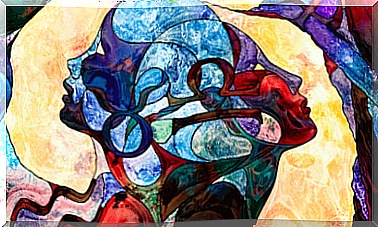How To Look Beyond The Obvious

Understanding enough to see beyond the obvious means realizing that there are phenomena that can only be observed “below the surface” of the impressions that come through the senses. So, do not be content with what is immediately apparent if you want to understand the background of a situation.
Some people possess significant intuition and can often see beyond the obvious, but not everyone develops this ability. Some professions are even based on this type of thought process. For example, doctors, psychologists, criminal investigators and lawyers must be able to look beneath the surface to reach a solid conclusion. However, all people can practice this ability.
But seeing beyond the obvious is not an ability that people often use. When people receive information about a problem, they tend to simplify it almost automatically. And this happens easily for all of us, unfortunately.
Continuously looking for more complex alternatives is rarely rewarded, and doing so would simply not be an effective use of your cognitive resources. It is natural for people to simplify problems quickly in order to process the information they receive in as short a time as possible.
As if that were not enough, thanks to technical availability, problems are easy and their solutions seem simpler than they really are. Add this to people’s tendency to already reduce their focus, and you can see the problem.
This can prevent you from looking beyond the obvious and getting closer to the truth. For this reason, it is necessary to develop and practice complex thoughts.

Develop your complex thinking to understand more
Edgar Morin, a French sociologist and philosopher, studied what is necessary to look beyond the obvious and get closer to the truth. According to him, the more complex a situation is, the more details about the society you are part of you should keep in mind. If you do not have it, it is very easy for you to miss relevant details and priorities.
Depending on the characteristics of our current society, one should therefore reflect on the information before developing a valid opinion. The capacity for reflection is the very definition of a complex thought.
Instead of falling into simplistic thinking to get to the truth, try the opposite: Increase the amount of information you have. You should simply avoid reducing what you are going through to simple facts if you want to understand what is happening. In addition, you should avoid choosing a final position based on inadequate evidence.
With that said, complex thinking is in itself complicated because it is not something innate. You have to train yourself on it and really benefit from what you are learning.
Matthew Lipman, professor of philosophy, said that it is extremely important to introduce this type of thinking in young children. Complex thinking is available to everyone. Just like simple thinking, it is something we can practice.

What you can not see: the quality of complex thinking
Imagine a complex thought, as Edgar Morin says, as a large web. The thin wires lock each other and connect all the different components. These threads are events, actions, experiences, decisions and coincidences.
Although Edgar Morin was the official founder of the idea of this type of thinking, his predecessor, Leonardo da Vinci, also studied and developed strategic thinking. His theory of complexity explains it well, and his work establishes this vision. They challenge the recipient to search for information that is not obvious.
Greek philosophers used ethics, the branch of Byzantine philosophy that studies thought and the highest knowledge: especially when it is objective and comprehensible. Sometimes, however, people ignore information. Other times, they simply do not have access to it.
The word ethics comes from the Greek word nous , which can be translated as reason. From this, the verb form will think sensibly . The Byzantines used the verb form with a meaning that is close to using their intuition .
Realizing that there is additional information that you do not yet know is the first step to developing complex thinking. Everyone can practice looking beyond the obvious. To do so, however, you must rely more on your intention, your reason, and your intuition, than on your immediately obvious sensory impressions. To see what is really there, you must first see what is not there.








